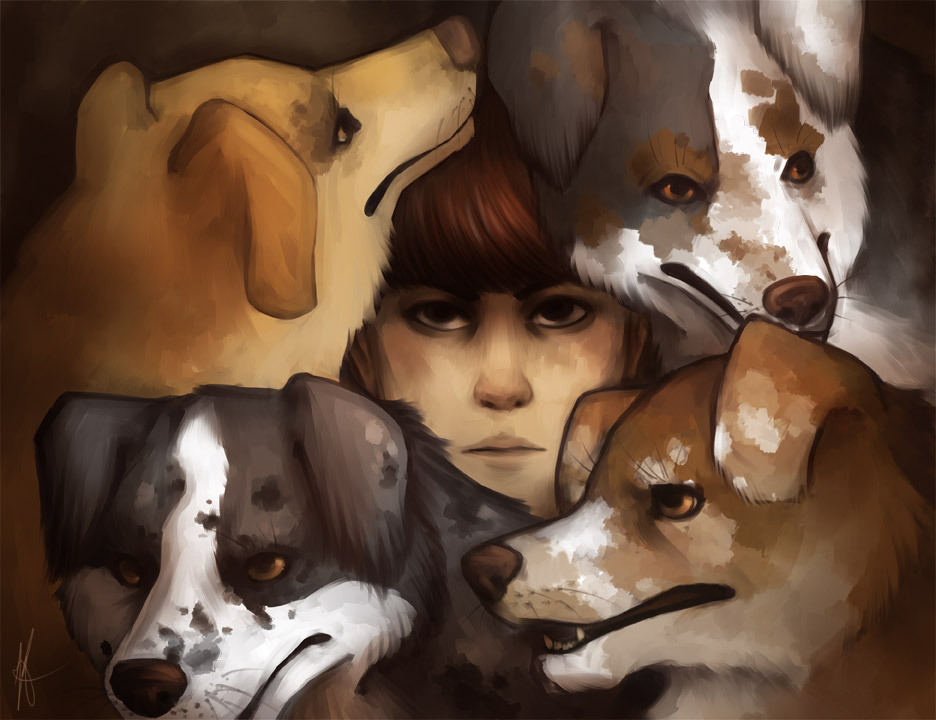Feral comes from the Latin “Fera” which means “wild” or undomesticated. Known as wild children or wolf children, wild children are infants who have grown up without human behaviour and are not exposed to language. Both of these processes are necessary for language development. Over the past 40 years, 100 wild children have been found.
Several cases of wild children have been reported in the media in recent years. In this article we will discuss the case of Oxana Malaya and the consequences of her non-socialization.
- The story of Oxana
Oxana Malaya was born in November 1983. She was a healthy Ukrainian girl with no abnormalities.
Abandoned by her alcoholic parents, Oxana found refuge with a pack of dogs, who eventually raised her as one of their own. She lived with dogs for 6 years.
She was found in a kennel in 1991, at the age of 8 by a neighbour who reported the alarming situation to the authorities .
The doctor Vladimir Nagany, says that “children can copy the habits around them”. Indeed Oxana had more of a dog-like attitude than a human being.
During an interview, Oxana said that when she was young, the dog gave her milk directly to her mammary gland. As she grew up, the pack of dogs brought her food daily by sharing raw meat and all kinds of edible and non-edible food.
For 5 years, the dogs gave Oxana all their love, attention and meals. They protected her, helping her to survive.
Childhood is the most important period to learn language through different cognitive processes. At the social level, the attachment theory proposed by Bowlby in 1958 is important because infants need a primary caregiver for good development. They are unable to learn language due to various cognitive, social and emotional dysfunctions.
Wild children are isolated from social activities with humans and some of them have found some kind of comfort with animals. And they end up being like them, walking like them and communicating like them.
- His discovery at now
Steve Fryer, an animal behaviour specialist, said that dogs are good companions for a safe life, but living with them on a daily basis has repercussions.
Language is proof of this:
Oxana still couldn’t speak at the age of 8, which slowed down her learning in social life considerably.
Moreover, Oxana did not know, at the same age, what a mirror was and therefore did not recognise the reflected image of herself. This is an important step in a child’s development.
At the age of 19, Oxana speaks in simple sentences. It is thanks to years of therapy that she is able to do this. She has also learned to develop social skills, but she is unable to read or write. Thanks to tests and exercises, her mental age is estimated at 5-6 years.
Dr. Nagany has tried to correct her behaviour so that she can integrate into society. Even though she is not considered a “normal” person, she is obliged to appear as such to be accepted.
Oxana is making amazing progress throughout her life. Today she is 30 years old, lives in Odessa and works in an animal shelter.
Thanks to this story, we understand that socialisation (language, interaction, culture…) plays an important role in a child’s development. Simply being in contact with animals does not allow a child to develop properly. And in the case of Oxana, having lived for several years in a pack had important consequences. And this will forever impact her life as a woman.
